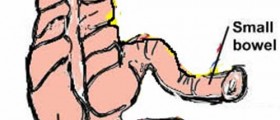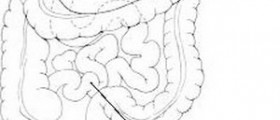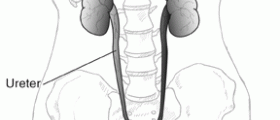
What is Appendicitis?
Acute appendicitis is inflammation of the appendix, an organ on the right side of the abdomen that does not appear to have any function. This kind of inflammation can happen at any age, but is more common in second and third decade of life. The most common inducing factor of acute appendicitis is obstruction of its opening, but abdominal trauma, parasites, and inflammatory bowel conditions can also be to blame.
With the blockage of appendix, infection can set in and swelling develops, too. Ischemia and necrosis of the wall of the appendix follow soon, and this situation is even more suitable for further bacteria growth. Inflammation additionally complicates with the rupture of appendix and with that breach, inflammation starts to spread and peritonitis might happen. Appendicitis can go the other way, the signs and symptoms can subdue on their own.
As for the symptoms of appendicitis, the main ones are abdominal pain followed by nausea and the urge to vomit. Body temperature is increased, and headache can occur too. There is also a difference between armpit and rectal temperature. The tongue of the patient is covered with white layer and number of leucocytes grows. If acute appendicitis is not diagnosed in time and operated, complications emerge and one of those is ruptured appendix. This can end even tragically if the reaction is not timely. Rupture happens usually about 12 hours after the first signs of condition. The pain that was present stops but that is only temporary, because the inflammation spreads and the pressure in appendix decreases. The peritoneal cavity gets infected and peritonitis arrives, high temperature comes next, along with intoxication.
Treatment of Acute Appendicitis
The treatment of appendicitis requires urgent surgery, which includes the removal of the appendix. Surgery for a ruptured appendix is performed with high precautions in order to avoid further spread of infectious pus into peritoneal cavity. During the procedure, high doses of antibiotics are used, while the patient is under total anesthesia. If the surgeons are not sure if appendicitis is properly diagnosed, it is better to remove the appendix as a precaution, because appendix rupture is a very serious condition and the appendix is far from an essential organ. After the surgery, which is among the most routine, simple to perform, and safe, the patient should be able to leave the hospital after only couple of days, generally with no lasting complications of any kind.
The general problem with acute appendicitis is that it is not easily diagnosed and therefore, ruptures happen quite often. Furthermore, appendicitis signs might easily point to some other condition, which only shortens the time for a fast reaction, as proper diagnosis may take some time. One condition that has similar symptoms is gastroenteritis, which is characterized by abdominal pain that comes after nausea and vomiting, while in acute appendicitis pain is always first. The most important thing, when it comes to a ruptured appendix, is for a doctor to diagnose it and to send a patient into surgery immediately. Time is of essence here, because it can be the difference between life and death.

















Your thoughts on this
Loading...